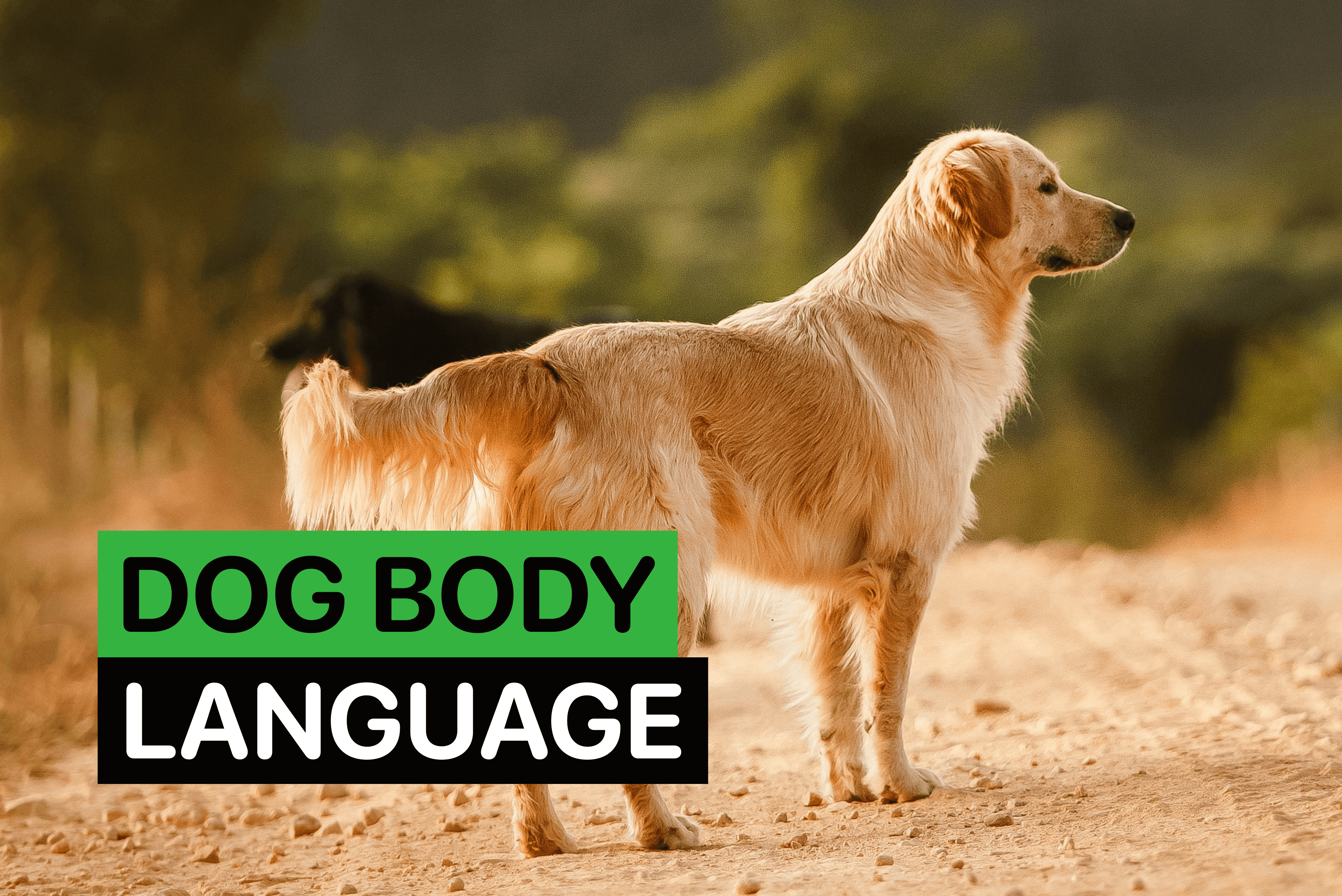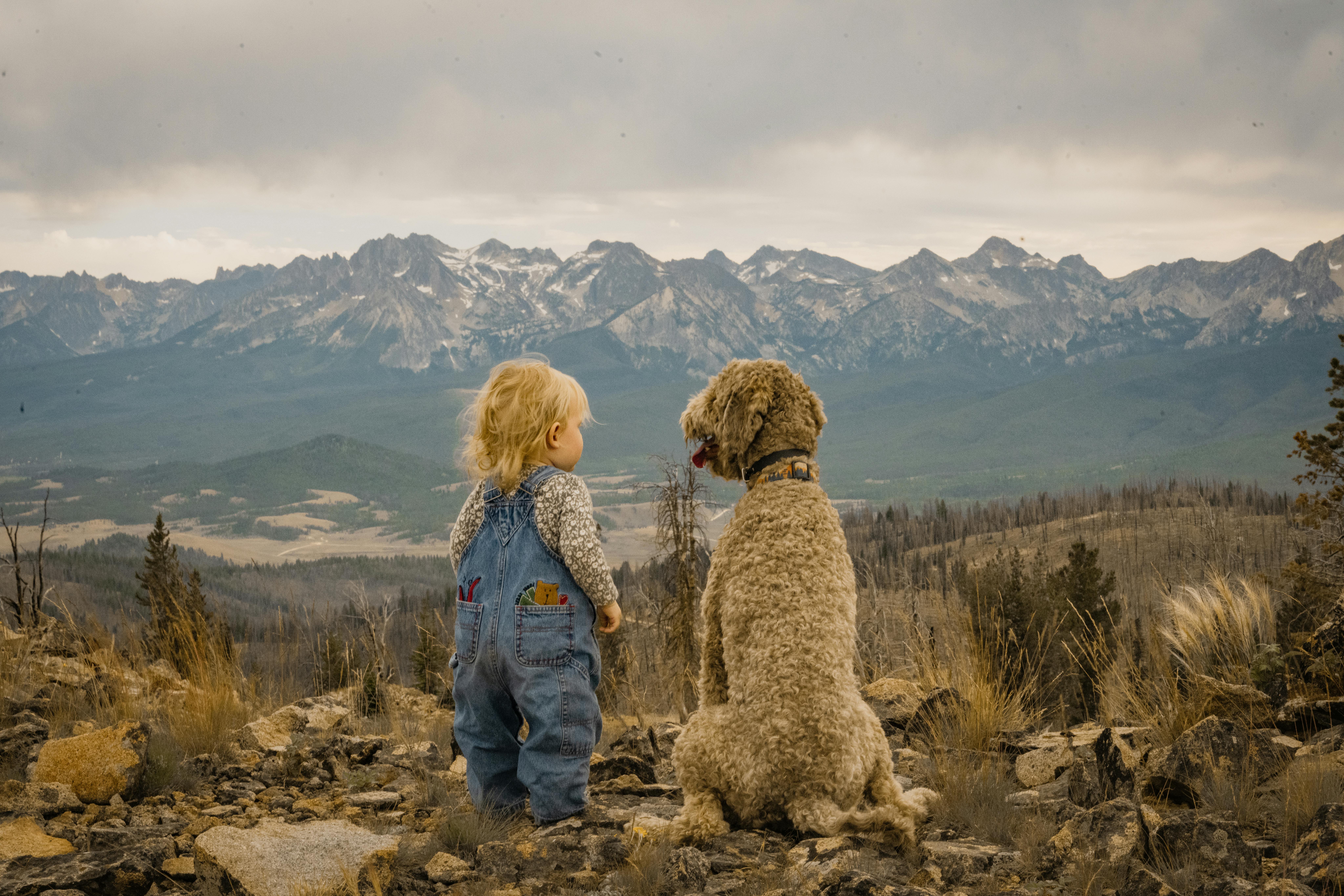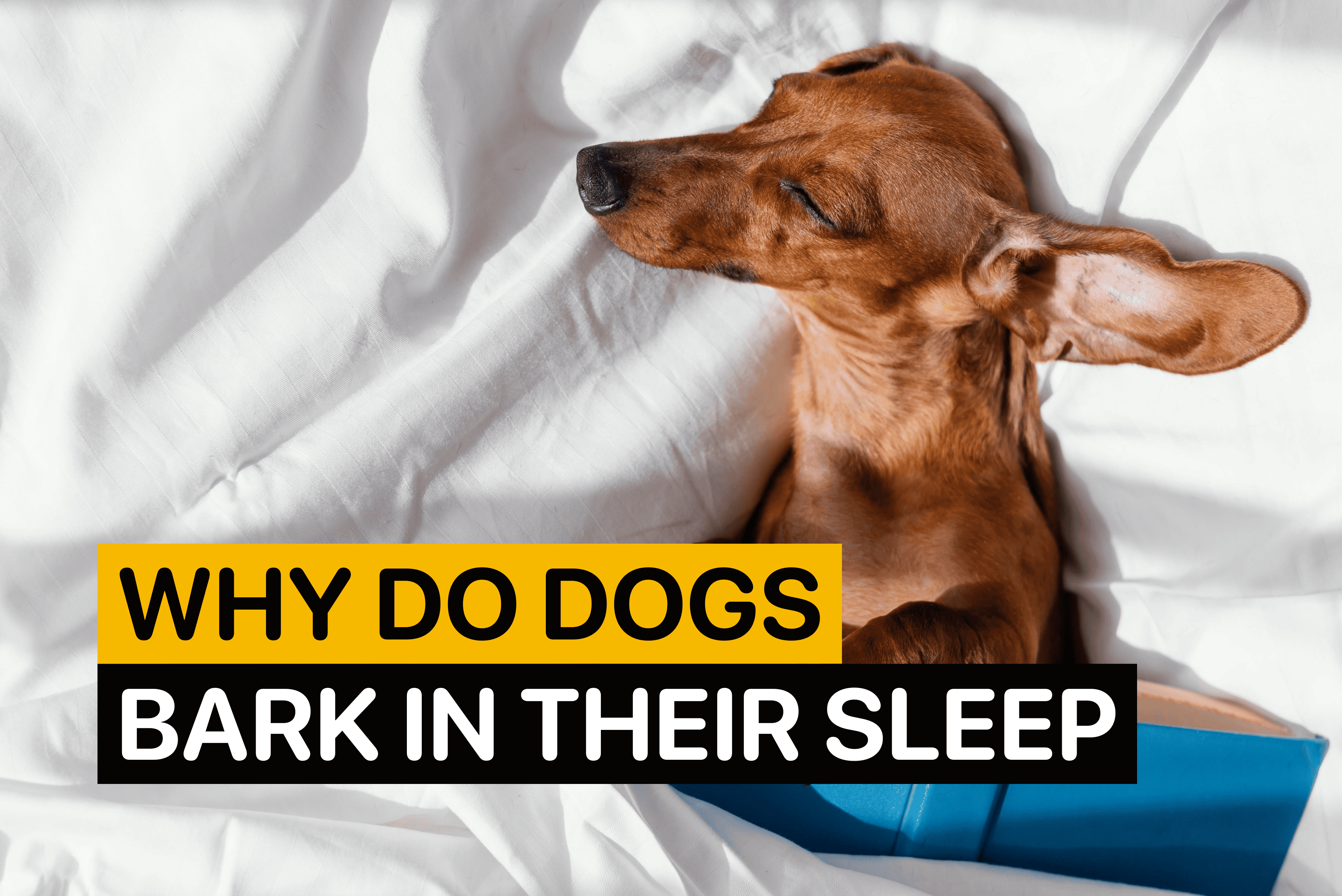What Does a Dog's Howling Mean?

By
Woofz Team Updated on |Reviewed by Annie-Mae Levy
Dogs are eager to communicate with humans, making sounds and using various types of body language. If common behaviors like tail wagging, growling, or barking are typical canine attributes, howling can catch dog owners off guard. Do you ask yourself: Why is my dog howling? Is this eerie sound a sign that your pet is in distress?
You’re in the right place if you want the answers to these questions. Keep reading to learn more about the most common reasons behind domesticated dogs' howling, and when excessive vocalization can indicate an underlying problem.
What Does It Mean When a Dog Is Howling?
There’s no conclusive scientific evidence on why canines howl. This vocal behavior stems from your dog’s ancestral roots. They can produce this loud, heart-wrenching, and mournful cry or high-pitched sounds like wolves; however, the reasons why your dog howls may differ from why a wolf in the wild does.
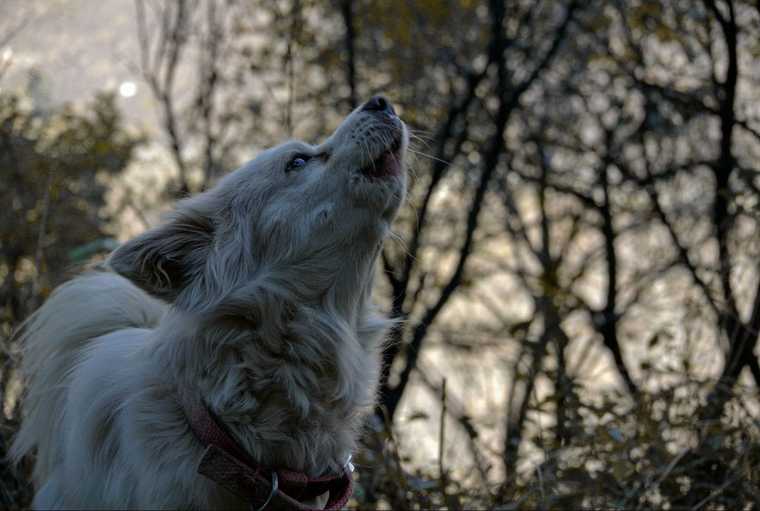
For wolves, howling is a way to deliver a message to other pack members over long distances. In other words, a wolf pack howls to keep track of one another. Though a dog may howl for similar reasons, our canine companions grew closer to humans through evolution. As a result, these high-pitched sounds started to carry out other communicative functions.
To determine the exact meaning of a dog howling, consider the broader context in which the behavior occurs. Depending on the situation, they might do it to mark their territory, communicate their location to other canines, or simply make you pay attention to them. Below, we’ll explain some common reasons for excessive vocalization.
Why Do Dogs Howl: 7 Common Reasons
Howling in canines has a social nature. If it’s not for illness or physical discomfort. Despite some shared features with wolves' behavior, it has evolved and serves some extra purposes in our modern-day environment. Let’s discuss some frequent reasons why domesticated canines resort to this type of vocalization.
1. The need to stay in touch with pack members
It’s easy to imagine a wild dog living in an actual pack howling. But why do domesticated dogs howl? Like wolves, some pups howl to stay in touch with other dogs, especially as a way to transfer messages over a long distance. It can also inform others about a dog’s location and serve as an invitation to interaction.
2. They instinctively protect their territory from predators
Dogs can use howling to announce their territory to rival animals, warn their owners about potential threats, or keep predators away from their human families. For this reason, one howling pup in the neighborhood can cause every dog in the immediate vicinity to respond similarly. It’s a fast and effective way for canines to let each other know who owns which territory.
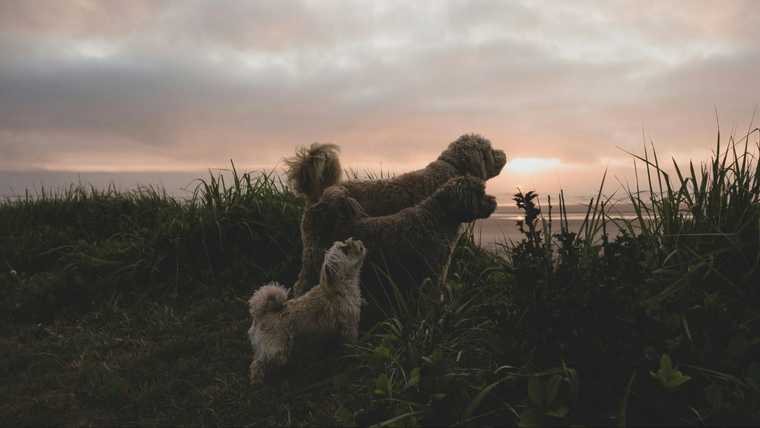
3. They react to a sound stimulus
You may notice your pet gets agitated and starts howling in response to loud and triggering noises. Canines are famous for howling in response to changes in their environment. Possible triggers are loud musical instruments, blaring sirens, an emergency vehicle, or other dogs howling.
This is often called “contagious howling” among dogs who live in urban areas. It doesn’t necessarily mean they dislike the sound. On the contrary, it can be their way of showing they want to join in whatever is happening.
4. They’re suffering from an underlying physical illness or discomfort
Most dog owners feel uneasy when their pet starts howling regularly or over a long time. Some dogs howl to express pain and draw your attention to their poor physical state. If your typically quiet pet begins to vocalize more often than usual, it may be a response to physical discomfort or pain. Taking them to the vet is essential to exclude any underlying health issues.
Indeed, excessive vocalization, including howling and barking, can indicate physical pain. However, you can watch out for other telling signs of discomfort that canines usually show.

Other signs your dog is in pain may include:
- Walking slower and a reluctance to perform certain activities
- Restlessness and aggression
- Shaking and muscle twitches
- Disrupted sleeping habits
Contact your vet for further assistance if you notice your dog displaying any behavior changes.
5. They attempt to communicate strong emotions
Canines may use this behavior to express various emotions, ranging from positive ones, such as triumph or excitement, to negative ones, including fear, anxiety, and sadness. Vocalization can also function as a way to ask for human companionship.
Some pet parents notice that their fluffy friends tend to howl when they’re alone at home. So, why do dogs howl when you leave? Many canines experience separation anxiety, which can manifest itself as continuous howling in their owner’s absence.
If you suspect your dog is dealing with separation anxiety, look out for other symptoms of this condition:
- Pacing
- Whining
- Digging
- Scratching
Remember, you can help your dog tolerate your absence better by keeping them busy with various mental stimulation toys and activities.
Check out the Home Alone Program provided by Woofz!
6. They want to get your attention
Getting your attention, whether we talk about positive or negative attention, is essential for a dog. If they howl and you stop whatever you’re doing to calm them down, pet them, or simply talk to them, dogs learn that making the sound leads to interactions with the owner. That’s why it’s vital to determine attention-seeking howling and ignore it when possible.
Alternatively, you can teach your dog to remain silent when you give the command and positively reinforce quiet behavior. Also, remember to provide daily mental and physical exercise so your pet can spend time together. It reduces the chances of them getting bored and demanding your attention inappropriately.
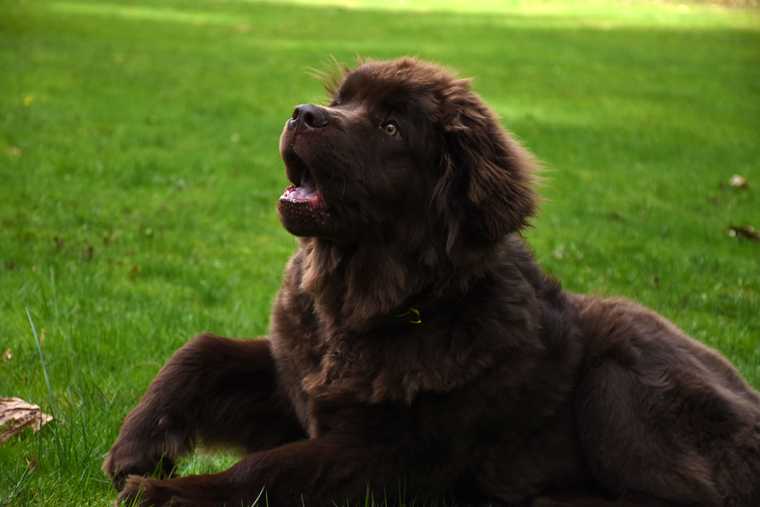
7. They belong to a breed that has howling tendencies
Generally speaking, breeds genetically closer to wolves are more likely to howl. They also frequently demonstrate other stress signals such as yawning, scratching their body, or licking their mouth.
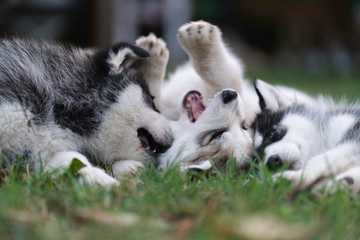
Among popular breeds that are prone to howling, you can find:
- Siberian Husky
- Alaskan Malamute
- Beagle
- Dachshund
- Shetland Sheepdog
Wrap Up
Howling is a natural form of communicating various needs your dog has. The closer your pet’s breed is to their wolf ancestors, the more prone they will be to excessive vocalization. Learning what your dog is trying to tell you by this behavior is essential to tackling it. Remember to ensure your dog doesn’t howl because they’re hurt. If howling isn’t caused by physical discomfort, remove potential triggers or train your dog to stay quiet.
